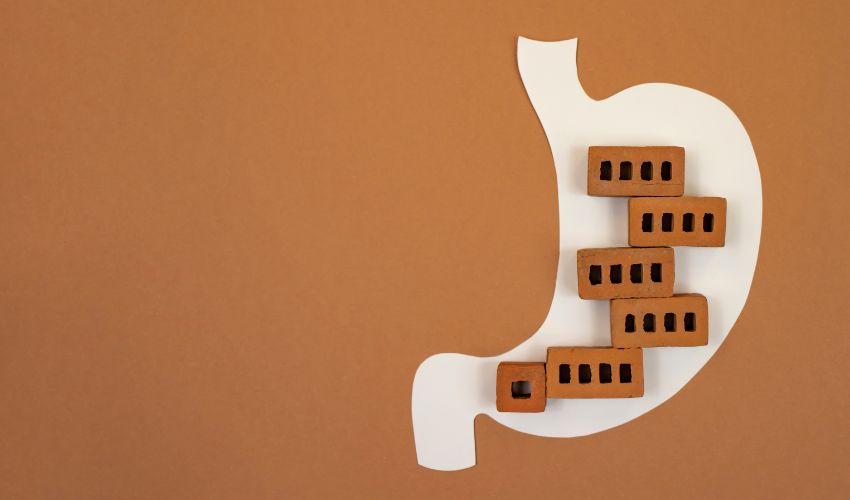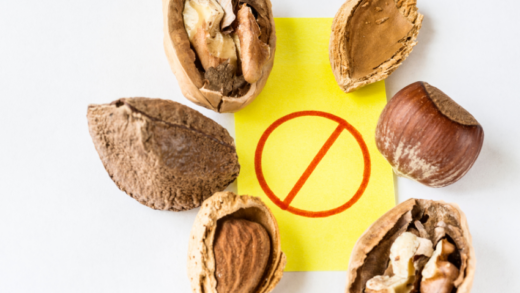Bloating is a common condition that many people experience at some point in their lives. It can be caused by a variety of factors, including diet, lifestyle, and underlying medical conditions. Understanding the causes of bloating can help you take steps to prevent it from occurring or manage it when it does happen.
Eating too fast or overeating is a common cause of bloating. When you eat too quickly, you may swallow air along with your food, which can lead to abdominal discomfort and gas. Overeating can also put pressure on your stomach, causing it to expand and leading to a feeling of fullness or tightness.

Consuming gas-producing foods such as beans, lentils, broccoli, and cabbage can also cause bloating. These foods contain carbohydrates that are difficult to digest, leading to the production of gas in your gut. Carbonated beverages can have a similar effect, as they release carbon dioxide gas when consumed.
Constipation or gastrointestinal issues can also contribute to bloating. When stool builds up in your colon, it can put pressure on your stomach and cause bloating. Irritable bowel syndrome (IBS), inflammatory bowel disease (IBD), and other gastrointestinal conditions can also cause bloating as a symptom.
Hormonal changes during menstruation or menopause can cause bloating in some women. This is due to changes in hormone levels that can affect digestion and lead to water retention in the body.
Food intolerances or allergies can also cause bloating. If your body is unable to digest certain foods properly, it can lead to bloating and other digestive symptoms. Common food intolerances include lactose intolerance and gluten intolerance.
Certain medications can also cause bloating as a side effect. Antibiotics, pain relievers, and iron supplements are among the medications that can cause bloating in some people.
Symptoms of bloating can vary from person to person, but may include abdominal discomfort or pain, a feeling of fullness or tightness in the stomach, excessive gas or burping, nausea or vomiting, and diarrhea or constipation. If your symptoms persist or worsen, it is important to seek medical attention to rule out any underlying medical conditions.
There are several remedies for bloating that you can try at home. Avoiding gas-producing foods and drinks, eating slowly and chewing food thoroughly, drinking plenty of water to aid digestion, and exercising regularly to aid digestion and promote bowel movements are all effective strategies. Taking probiotics to promote healthy gut bacteria and trying over-the-counter medications such as antacids or simethicone can also help alleviate symptoms. Managing stress through meditation, yoga, or other relaxation techniques can also be beneficial.
In conclusion, bloating is a common condition that can be caused by a variety of factors. Understanding the causes and symptoms of bloating can help you take steps to prevent it from occurring or manage it when it does happen. If your symptoms persist or worsen, it is important to seek medical attention to rule out any underlying medical conditions. By making lifestyle changes and trying simple remedies, you can alleviate the discomfort and pain associated with bloating and improve your overall digestive health.
FAQs:
Is bloating a serious medical condition?
In most cases, bloating is not a serious medical condition and can be managed with lifestyle changes and over-the-counter remedies. However, if bloating is accompanied by severe abdominal pain, vomiting, or fever, it may be a sign of a more serious condition and should be evaluated by a healthcare provider.

Can bloating be a sign of cancer?
Bloating can be a symptom of certain types of cancer, such as ovarian or colon cancer. However, it is important to note that bloating is a common condition and is usually not a sign of cancer. If you are concerned about your symptoms, it is best to consult with a healthcare provider.
Can bloating be prevented?
Bloating can be prevented or minimized by making lifestyle changes such as eating slowly, avoiding gas-producing foods and drinks, and exercising regularly. It is also important to manage stress and stay hydrated.
When should I seek medical attention for bloating?
You should seek medical attention if bloating is accompanied by severe abdominal pain, vomiting, or fever, or if it persists despite lifestyle changes and over-the-counter remedies.
Can medications cause bloating?
Yes, certain medications such as antibiotics, pain relievers, and iron supplements can cause bloating as a side effect. If you suspect that your medications are causing bloating, talk to your healthcare provider about alternative options.
Conclusion:
Bloating can be a painful and uncomfortable condition, but it can usually be managed with lifestyle changes and over-the-counter remedies. By understanding the causes, symptoms, and remedies for bloating, you can take steps to prevent and manage this common condition. If your symptoms persist or worsen, it is important to seek medical attention to rule out any underlying medical conditions.






















